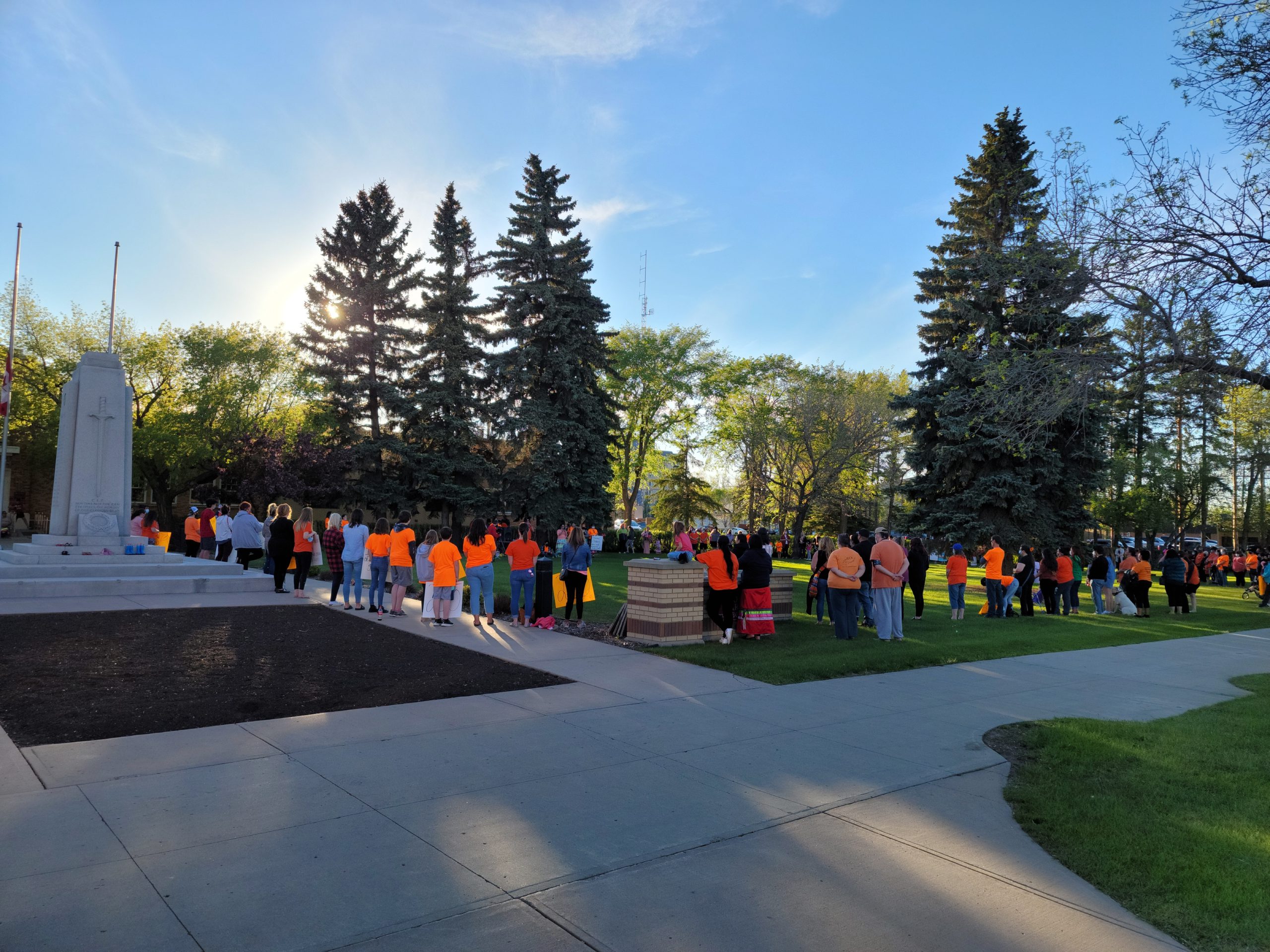“It’s a stat holiday for a reason. I guess it brings out more questions that people may have.”
Tinisha Young is a young Cree mother of two children who lives with her family in Lloydminster. She notes that the Federal Statutory holiday of Truth and Reconciliation brings the issues surrounding Residential Schools into greater focus and allows people to have more conversation, reflection and discussion.
September 30th has been observed by First Nations as Orange Shirt Day based on the documented life story of Phyllis Webstad who was taken to a residential school wearing an orange shirt given to her by her grandmother. When she got to the school, the shirt was taken away from her and never returned. Webstad says September 30th was chosen because it was the time of the year children were taken from their families and sent to Residential Schools.
Young’s family like many other First Nations families has Residential School survivors. Even though her son is younger than her daughter, he too wears an orange shirt and she shares with both her kids about the significance as they reflect on September 30th as a family.
“My daughter is only five. Her understanding of Orange Shirt Day isn’t as dark as some of our other perspectives. To her a little girl is taken from her family. She thought she was going to a nice school. She wore her best orange shirt that her grandma got her. And then when she got there, they took her orange shirt away.”
Young says her daughter feels remorse when she hears that story, but is still able to talk about it with others.
“Every year I make sure my kids have an orange shirt. And every year before my daughter goes to school, I ask her why she wears her orange shirt. She does a very good job of explaining why she wears her orange shirt. And she also does a very job of telling people why she is wearing an orange shirt.”
“Every Child Matters,” are the words printed on orange shirts. Over 150,000 children were taken to Residential Schools in Canada. The final Truth and Reconciliation report estimates between 4,000 and 6,000 children did not make it home, but it is difficult to estimate the exact number of children who died while attending Residential Schools in Canada.
Young says people can look for online resources for more information. For Lloydminster, visit the Heart of Treaty Six website. She recommends books like “I never lied” and “Indian Horse” which is on Netflix Canada as good resources. She adds that the Office of the Treaty Commissioner has resources including notebook size talking points on the TRC calls to action, books for kids and resources for teachers.




